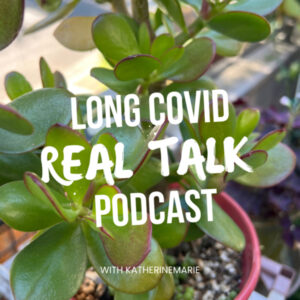Living with Long COVID can be a daunting journey, especially when cognitive challenges, often termed “brain fog,” become a daily obstacle. Brain fog can manifest as memory, focus, and clarity difficulties, making it hard to complete even simple tasks. However, there are strategies that can help improve cognitive function and make life a little easier. This article provides expert advice and real-life experiences from Long COVID survivors who have successfully navigated these challenges.
Understanding Brain Fog and Its Impact
Brain fog is a common yet frustrating symptom of Long COVID, characterized by confusion, forgetfulness, and difficulty concentrating. For many, it feels like a mental haze that prevents clear thinking and effective decision-making.

Dr. Lisa Nguyen, a cognitive health specialist, explains, “Brain fog can be one of the most debilitating aspects of Long COVID because it affects every part of daily life. Understanding it is the first step toward managing it.”
Practical Cognitive Strategies
Although brain fog can be persistent, several strategies can help improve cognitive function:
- Cognitive Exercises: Brain-training exercises can help improve memory and focus. Activities like puzzles, memory games, or apps designed to boost cognitive skills can be beneficial.
- Structured Routines: Creating a daily routine that includes regular breaks can help manage brain fog. Structure helps reduce decision fatigue, making it easier to focus on important tasks.
- Mindfulness and Relaxation: Mindfulness techniques, such as deep breathing exercises or progressive muscle relaxation, can reduce stress and improve mental clarity. Stress often exacerbates brain fog, so reducing stress can lead to clearer thinking.
- Healthy Sleep Habits: Quality sleep is essential for cognitive health. Establishing a consistent sleep schedule and creating a restful sleep environment can significantly improve mental clarity.
- Nutrition and Hydration: Proper nutrition and staying hydrated are critical for brain health. Diets rich in fruits, vegetables, and omega-3 fatty acids, as well as staying well-hydrated, can support cognitive function.


Personal Stories and Expert Insights
Hearing from others who have faced similar challenges can provide both comfort and practical tips. Here are some personal stories and expert insights on managing brain fog:
- Jessica’s Routine: “I struggled with focus and memory after contracting Long COVID. What helped me was sticking to a structured routine. I break my day into blocks and make sure to include plenty of breaks. It doesn’t eliminate the brain fog, but it helps me manage it better.”
- Michael’s Sleep Journey: “I was constantly feeling groggy and unable to think clearly. I realized my sleep quality was poor. By creating a better sleep environment, I noticed my brain fog started to lift.”
- Insight on Cognitive Exercises: Dr. Nguyen suggests starting with simple exercises like crossword puzzles or brain-training apps that target specific cognitive functions.
- Insight on Mindfulness: Practicing mindfulness regularly can help mitigate the mental fatigue associated with brain fog.
These stories and insights highlight the importance of finding personalized strategies that work for you. Brain fog can be challenging, but you can regain control over your cognitive health with the right approach.
Seeking Professional Help
If brain fog is severely impacting your quality of life, consider consulting with a cognitive health professional. They can offer tailored strategies and support to help you manage your symptoms.
Conclusion: Clearing the Fog
Navigating brain fog requires patience, self-compassion, and a willingness to experiment with different strategies. By incorporating cognitive exercises, maintaining structured routines, practicing mindfulness, prioritizing sleep, and focusing on nutrition, Long COVID survivors can find ways to clear the mental haze and regain clarity. Remember, while brain fog can be persistent, it doesn’t have to define your experience.

